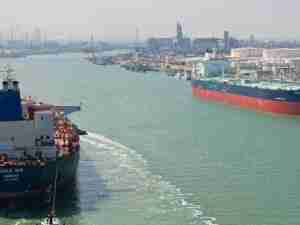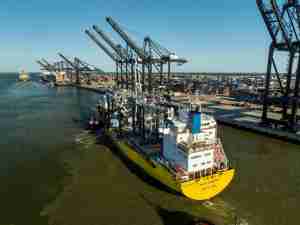The Seafarers’ International Union of Canada (SIU), in conjunction with the Canadian Maritime & Supply Chain Coalition (CMSCC), representing the majority of Seafarers & Maritime Logistics Unions across Canada, is calling on the Government of Canada to reverse the Maritime provisions outlined in the Comprehensive Economic and Trade Agreement (CETA). They are calling on the Canadian Government to strengthen Canada’s Cabotage laws in order prevent another environmental catastrophe like the oil spill in Vancouver this week.
Within CETA’s Maritime provisions, exploited and overworked foreign crew, unfamiliar with Canada’s fragile ecosystem, would be allowed to operate between two Canadian Ports, trade previously reserved for Canadian flagged and crewed vessels. This week’s spill was from the vessel MARATHASSA, a bulk carrier sailing under the Cyprus flag with foreign crew manning the vessel. Precisely the kind of vessel CETA would allow into trade in Canada permanently.
“The SIU of Canada is outraged that the Conservative Government is risking the St. Lawrence River’s and Great Lakes’ fragile ecosystem in the name of trade,” said James Given, President, Seafarers’ International Union of Canada and Chair of the CMSCC. “The SIU has long advocated that it would only take one accident to cause irreversible damage to the environment, and what we see in Vancouver is a complete catastrophe to its scenic English Bay.”
Foreign crews often lack the skills needed to operate in Canada’s confined waterways and struggle to meet our rigid safety standards. “The Government of Canada is taking a huge chance with the pristine waters of the St. Lawrence and Great Lakes,” continued Given. “Foreign vessels and crew have no vested interest in the protection of our waterways. They do not live or raise their families, nor do they rely on these waters exclusively like Canadian Seafarers do”.
“This is exactly why domestic shipping must remain a Canadian industry,” said Peter Lahay, Vancouver-based National Coordinator for the International Transport Workers Federation (ITF). “In our hands, such a catastrophic event is unlikely to occur, and if it did, the owner of the ship is right down the street. They have a stake in their community. Most importantly, we know who they are. They’re not some slippery numbered company in the Cayman Islands, Panama or Cyprus.”
“Typically, the captain of the MARATHASSA tried to deny his ship was leaking,” said Lahay. “Every day, Seafarers’ Representatives in Canada claw at the corporate veil shielding Flag of Convenience ship owners. We know all about intentional dumping of marine pollutants, about unpaid and exploited workers, and they deny that too.”
With tar balls and oil-coated rocks and barnacles already found on the beach, Vancouver’s environment is at risk. A risk that the SIU Canada completely knows could have been avoided. “There is always a risk of an accidental spill; however, Canadian vessels with highly trained Canadian crew greatly reduce that risk. Given concluded by saying, “we feel terrible for the people of Vancouver that have to endure an accident that in all likelihood could have been prevented. It’s time that we take a hard look at what ships we allow into Canadian Waters”.
Vancouver’s horrifying oil spill could have been avoided (SIU, CMSCC)
By: Seafarers' International Union of Canada | Apr 12 2015 at 12:55 AM | Ports & Terminals









